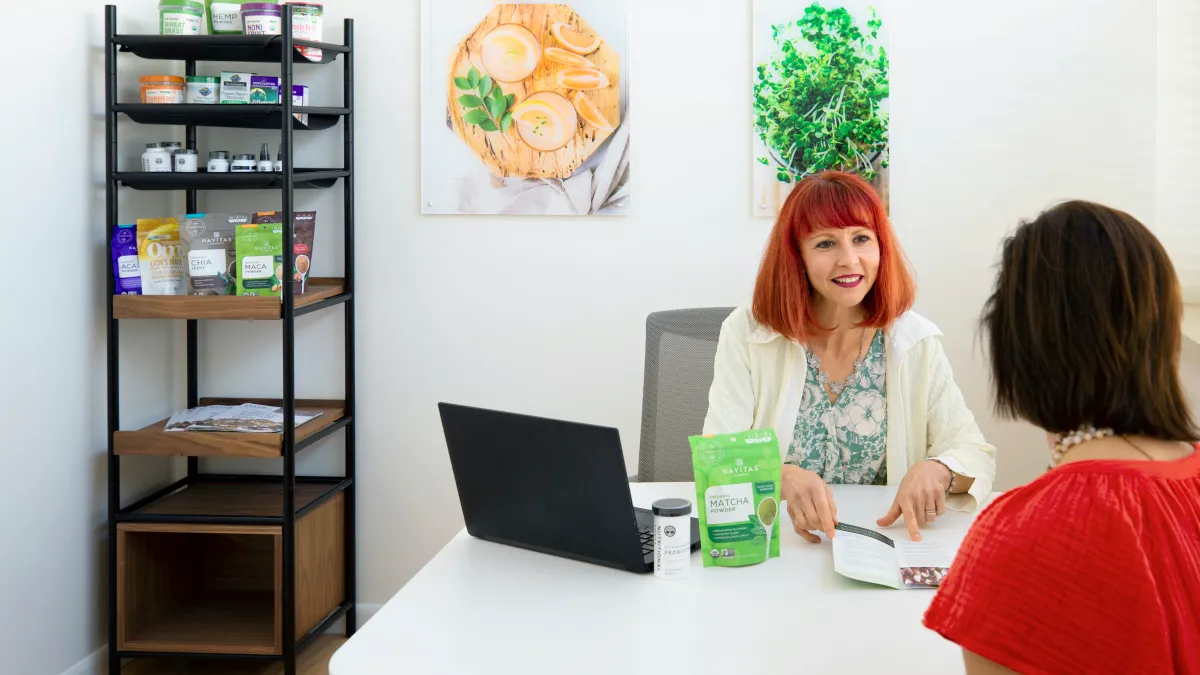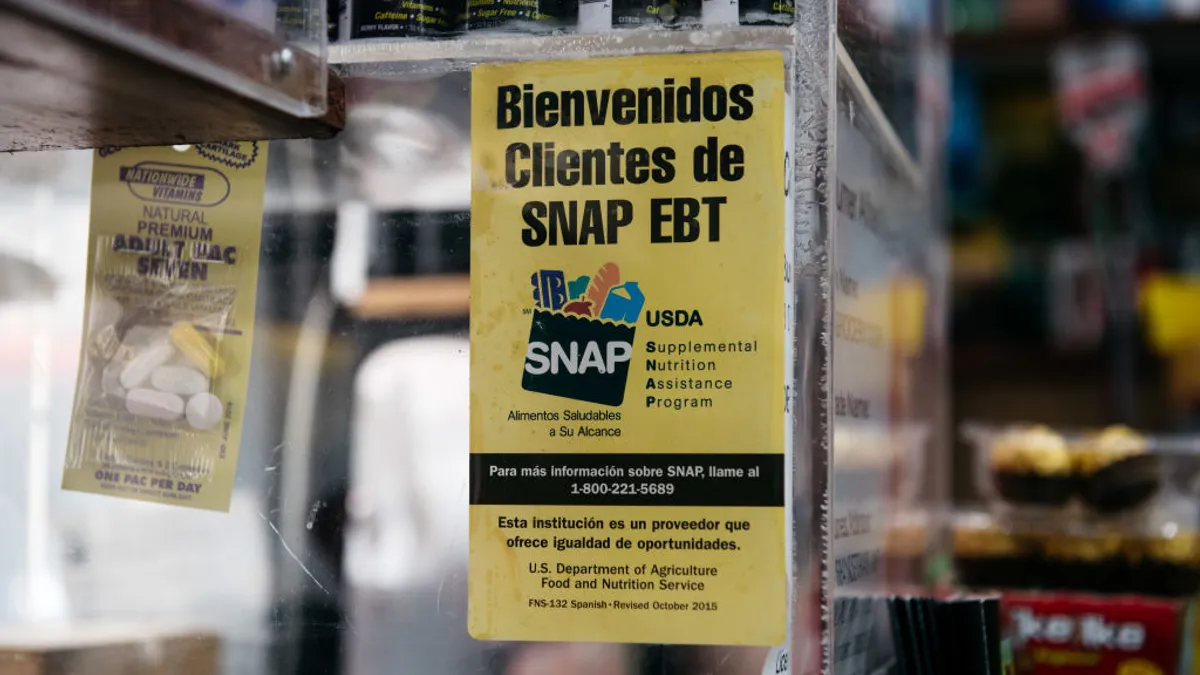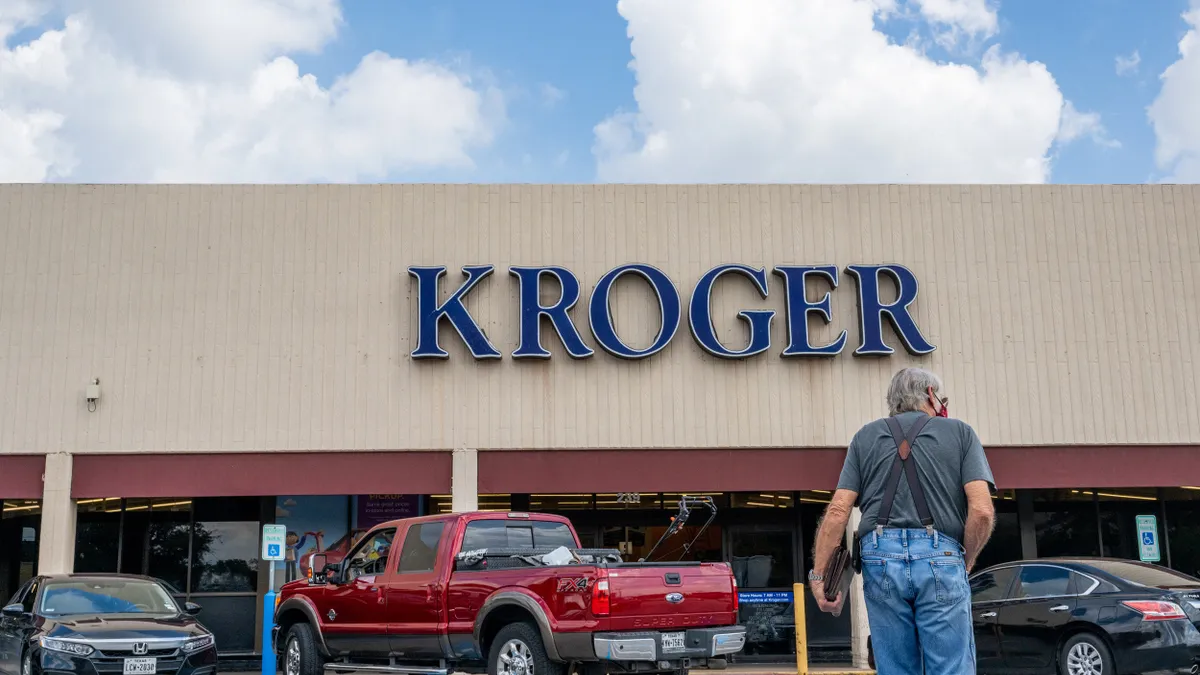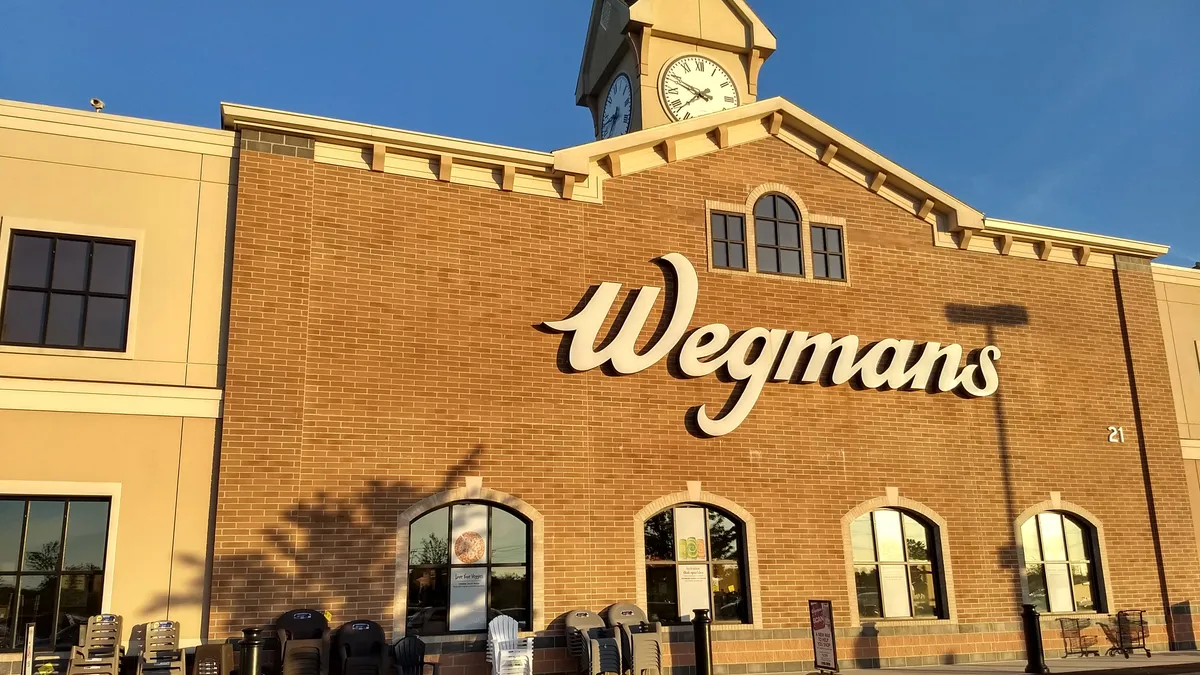Heinen’s recently opened a clinic inside one of its stores that it believes could be the future of health guidance in a retail setting.
But first, it needs people to show up.
The grocer’s new Personalized Nutrition Center, which began operating in its Mayfield Village, Ohio, store in January, has the appearance of a traditional in-store clinic or doctor’s office. Instead of treating colds and giving out flu shots, however, the center offers dietary counseling that can also include a diagnostic panel that determines the personalized nutrition needs of each individual.
The panel, which includes blood and urine tests, reveals key health markers across the immune, digestive and cardiovascular systems of each user and helps the clinic’s staff tailor dietary recommendations as well as supplements and vitamin infusions to them. The clinic is overseen by VitalHealth Partners, a medical practice run by Heinen’s chief medical officer, Dr. Todd Pesek, who also developed the proprietary panel, which costs $300.
To Pesek and Heinen’s chief innovation officer, Chris Foltz, offering a medically advanced nutrition clinic just steps away from the sales floor where people can buy the food they need to fulfill their dietary journey makes all the sense in the world. But they also acknowledge that consumers may not yet be ready to have their blood drawn and analyzed at the same place where they buy their fruit and cereal.
The center initially saw only a few visits per week, said Foltz. Signups have ticked up recently following a promotional push from Heinen's, including coverage by local TV stations, and now the Personalized Nutrition Center gets between 30 and 40 customers using one or more of its services per week, said Jamie Cole, program manager with Heinen's.
“We have a really high credibility hurdle to pass,” said Foltz.
Still, with the medical community increasingly focusing on preventive health and the role of food as medicine, it appears Heinen’s is headed in the right direction.
Although the use of medically tailored diets may be new to the grocery industry, health companies are developing personalized diet systems based on indicators like the makeup of a person’s digestive system. These “precision nutrition” programs, which often incorporate artificial intelligence and adhere to the concept that foods interact uniquely with peoples’ bodies, have had mixed success so far, but researchers are taking a closer look at its possibilities. Earlier this year, the National Institutes of Health announced it would spend $170 million on a study to “develop algorithms to predict individual responses to food and dietary routines.”
Personalized health goes mainstream
Leading-edge science aside, consumers are becoming more familiar with the ways their dietary choices impact their health, said Pesek. And grocers have helped strengthen that connection through resources like dietitian counseling, nutrition labeling programs, healthy recipe recommendations and produce prescriptions.
Now, grocers are taking the next step by rolling out personalized health tools that offer tailored food scoring and dietary guidance, and tie in with their digital platforms. These programs aren’t yet as in-depth as the system consumers can find at Heinen's Mayfield Village store, but they take an individualized approach that aims to boost loyalty and make health guidance more engaging.
In January, Schnuck Markets unveiled a program called Good For You that tallies up the healthy products shoppers buy on their receipts, suggests practical product swaps and offers product discounts for members. The system incorporates more than 5,000 products that Schnucks and its technology partner, U.K.-based Spoon Guru, determined to be healthy choices.
Right now, Good For You is focused on encouraging members to eat healthy and giving them a sense of what products it considers better for you. This approach aims to provide more clarity for customers than the healthy marketing programs Schnucks has used in the past, like providing shelf tags that label items that adhere to various diets and lifestyles. It also helps Schnucks gather valuable data on health-conscious consumers, which it can use to send personalized offers, improve merchandising and manage other aspects of its business, said Allison Primo, health and wellness strategy manager with Schnucks.
“Having this group of customers that has identified themselves as either healthy individuals or wanting to be healthy — it offers a lot of opportunity for us to target them and provide more personalized information about what we are doing as a company,” Primo said.
More than 15,000 customers signed up for Good For You within the program’s first three months, said Primo, and it’s currently on track to hit its goal of 50,000 sign-ups by September. She said Schnucks recently put up shelf tags identifying Good For You products, and plans to stage a promotional push with in-store signage and digital promotions this spring to boost signups.
In the future, Primo said the program could personalize the information it sends to users based on their dietary needs. She’s also looking at ways to “gamify” the program by offering additional loyalty points, digital badges and other incentives for hitting health goals.
“It's taking something like health that seems like such a hassle and trying to break down those barriers but then also make it fun,” Primo said.
Markus Stripf, co-founder of Spoon Guru, said his company, which also works with Tesco in the U.K. and Woolworths in Australia, utilizes artificial intelligence to help shoppers find healthy products they like, track their progress and push helpful resources like recipes to them. The approach centers on curation, transparency and gamification, but Stripf said the company is also thinking about ways to enable personalized diets and health plans.
He pointed out that while retailers have invested in dietitians over the years to offer individual guidance to consumers, they’ve struggled to scale these programs. Some retailers, like Kroger and Hy-Vee, offer telehealth appointments with dietitians.
“I can certainly see a world where a retail dietitian enables you to really understand what your individual dietary requirements are, and then gives you a digital tool, whether it's an app that allows you to scan barcodes or a web-based program that allows you then to stick to your diet,” Stripf said.
Niemann Foods, which owns the County Market grocery chain in the Midwest, offers an app called LiveWell that lets shoppers scan a barcode with their phone and see a personalized score for that item based on the health information shoppers provide, like dietary goals and restrictions. The app recommends product swaps and recipes, and also provides digital coupons for healthy items.
Kroger is also circling the personalized health space. Company executives have talked publicly about how stores' grocery assortment and pharmacies play a key role in helping prevent and treat conditions like diabetes.
In 2018, Kroger rolled out OptUp, an app-based nutrition rating system that provides a health score for each product ranging from 1 to 100. The system provides a total score for each user along with supplemental information, or “nutritional insights,” based on that total.
In 2020, the grocer tested a program that linked diabetes patients with Kroger dietitians, who then wrote "food prescriptions" in line with their doctor's advice. Kroger now refers to its OptUp program and dietitian counseling as its "food as medicine" approach, and recently publicized a study that touted the benefits of this approach.
Heinen's looks to scale its 'pharmacy of the future'
Gary Hawkins, founder and CEO of the Center for Advancing Retail & Technology, said that for retailers, the most valuable asset in these digitally linked health programs right now is the consumer data they produce, which they can monetize and use to inform their product assortments.
Looking ahead, he said the medical community’s focus on preventive health and the role of food will only grow stronger in the years ahead. That presents more opportunities for retailers to develop programs that strengthen that connection for consumers, and that use advances in medicine and digital technology to personalize their approach. Grocers that operate pharmacies, meanwhile, can connect those facilities to their efforts as an entry point for consumers, as a supplemental resource, or both.
Hawkins said grocers could eventually be able to tie in with health insurers, which could provide incentives to consumers for following these programs and taking other preventive health steps centered around stores.
“Where I see this going is an even tighter convergence between food and healthcare, and I think we are absolutely going to see incentives coming into play by healthcare providers, by managed care, encouraging people to eat better,” Hawkins said.
Grocers could also partner with employers looking to revamp their employee benefits packages and keep insurance costs down through preventive health measures. That’s what Heinen’s aims to do with its personalized nutrition program. The grocer has had conversations with local companies and recently signed up its first client, a local manufacturer, that will pay for any interested employees to undergo the health panel and receive nutrition counseling from Heinen’s dietitians.
“I can certainly see a world where a retail dietitian enables you to really understand what your individual dietary requirements are, and then gives you a digital tool, whether it’s an app that allows you to scan barcodes or a web-based program that allows you then to stick to your diet.”

Markus Stripf
Co-founder, Spoon Guru
Foltz sees the grocer’s Personalized Nutrition Center, which he referred to as a "pharmacy of the future," as part of a broader health ecosystem that draws in consumers, employers and an evolving product selection. The center ties in with Club Fx, the company’s recently launched health membership program that identifies healthy products, offers product discounts and provides weekly wellness tips via email. Club Fx branded products are starting to show up on shelves, including new prepared meals that Heinen’s is trialing at several stores.
Since its launch early last year, Heinen's has signed up 41,500 shoppers for Club Fx across its 23 stores, said Cole.
Foltz sees an opportunity for Heinen’s to become a wellness destination for shoppers, and not just a grocery store. But it will be difficult to convince people that this is possible, he conceded, and to even follow a personalized diet plan. Foltz also noted the company is swimming against the prevailing approach among doctors and other medical professionals these days, which focuses on prescribing medicine to treat various conditions while providing light guidance around preventive measures like diet and exercise.
“This is a little bit above and beyond what most medical practitioners are doing these days,” he said. “And so the challenge is for there to be effective collaboration.”
Heinen’s will evaluate the center over the next year or so before deciding whether to extend it to other locations. He doesn’t expect the center will ever generate a profit, but hopes it can help boost sales and customer loyalty in its stores.
Pesek, Heinen’s chief medical officer, said the company’s personalized nutrition approach is trying to add significant depth and clarity to the grocer’s ongoing health mission.
“Everybody knows that they need to eat more healthfully. But how can they do so the most easily for the [most] benefit?" he said. "That's what this does. This adds depth and authenticity, and also enables people to take a very targeted individual approach."





















